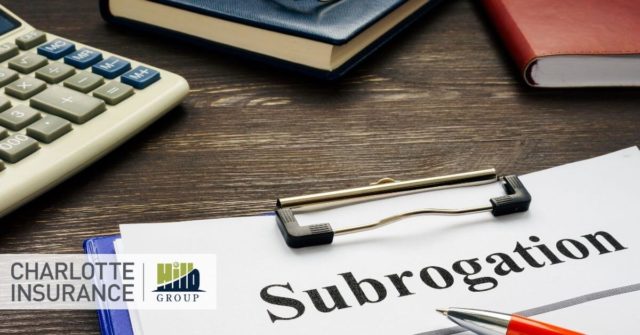You’ve been told over and over again to make sure you read your insurance policy in full so you know exactly what’s covered. If not, you might be severely disappointed when you file a claim because you didn’t know what was and wasn’t covered.
Now you’re reading the policy and come across a term that you’re unfamiliar with: subrogation.
What is that? How does it work? What does it mean?
Here’s what you need to know about subrogation.
Subrogation Clause
In your insurance policy, whether it’s home insurance or auto insurance, you likely have a subrogation clause written into the policy. When you sign up for insurance coverage and pay your premiums, you agree to this clause for the term of your policy.
Subrogation is the legal right of your insurance provider to work on your behalf to get money back from a third party (or the insurer of that third party) when they caused damage or loss that resulted in your insurance provider paying the claim instead. Subrogation recovery occurs when your insurer sues or works with another insurance company to recover payments they made for your claim but the third party was responsible for paying.
Let’s look an example:
A tree falls during a storm and damages part of your roof. You file a claim with your homeowner’s insurance immediately. They assess the damage and pay the claim, minus your deductible, so you can have the damage repaired as quickly as possible.
The tree, however, was originally in your neighbor’s yard. It wasn’t maintained and should have been taken down long ago. Your insurance company discovers that your neighbor is actually responsible for the damage. Subrogation recovery allows them to sue your neighbor (or more accurately, your neighbor’s homeowners insurance) for the damages from your claim.
You’ve already been paid and are moving on with your life. You won’t be involved in the back and forth and might not even know it’s happening but the subrogation clause gave your insurance company the legal right to “fight” to get the money back without your direct involvement.
Subrogation Recovery
Because the question of “fault” in an accident isn’t always known or very clear when you file a claim, what you do after an accident and during the claims process can make a big difference in subrogation recovery.
- First, always file a claim as soon as possible. This helps you recover faster.
- Next, document (with pictures, video, and/or written statements) as many details as you can as soon as possible. This is important while memories are fresh and before you start clearing debris or dealing with the damage.
- You can never provide too many details during the claims process. You never know what might help your insurance provider figure out who was actually at fault for the damage – like a neighbor.
While you’re rarely aware that subrogation recovery is taking place, you do benefit from it. In some cases, you may be entitled to reimbursement of part or all of the deductible you paid, if the claim is paid back by the third party. And everyone benefits because subrogation allows insurance companies to keep their costs down which helps lower premiums for everyone.
Have questions about a recent claim or what’s included in your insurance policy? Contact Charlotte Insurance today and let us help you understand your coverage or find a better policy that fits your needs.

